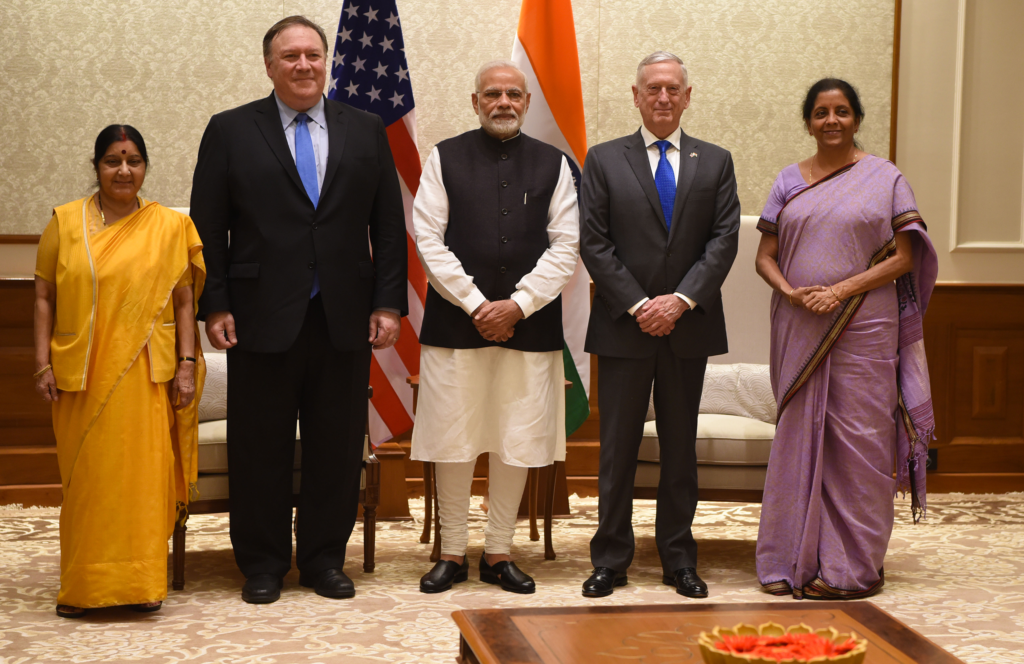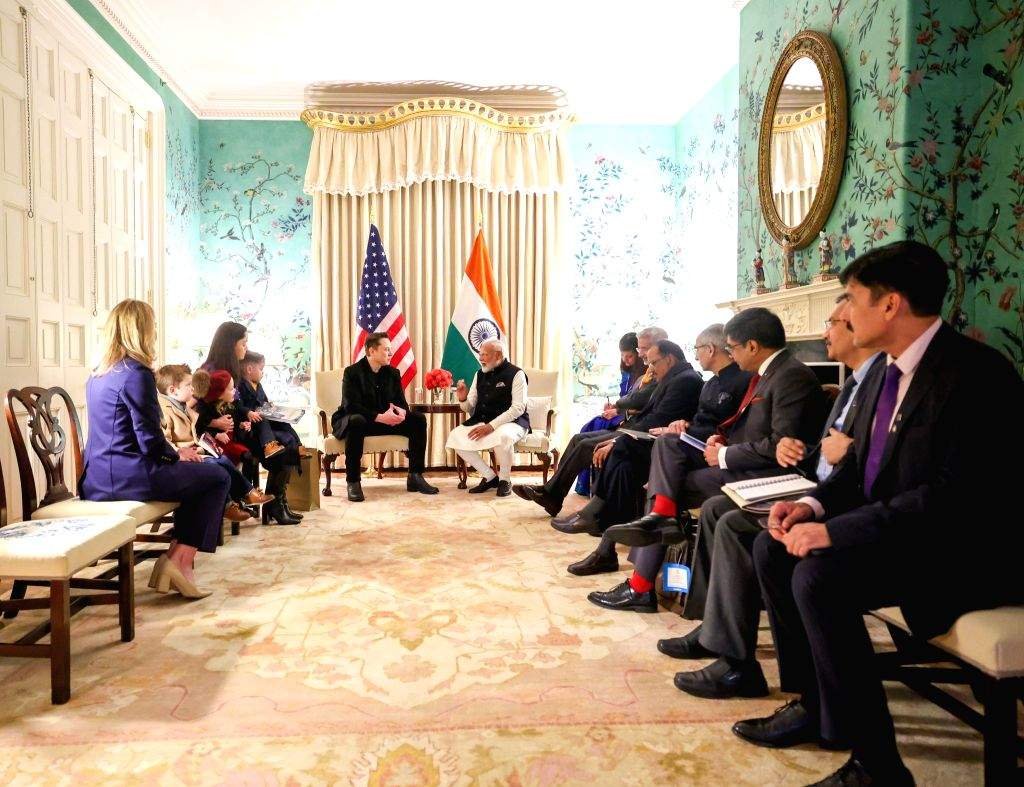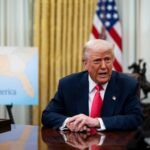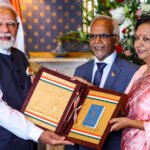PM Modi’s recent visit to the United States has been marked by high-profile meetings with key global figures, including billionaire entrepreneur Elon Musk, US National Security Advisor Michael Waltz, and Indian-origin entrepreneur Vivek Ramaswamy. This comes ahead of a crucial bilateral meeting with US President Donald Trump. The discussions spanned multiple areas of cooperation, from strategic defense to technological advancements, underlining the growing significance of India-US relations. Here are ten key takeaways from PM Modi’s visit and the anticipated outcomes of his meeting with President Trump.

1. Strengthening the India-US Strategic Partnership
For nearly three decades, successive US presidents have prioritized strengthening ties with India, viewing it as a natural ally against a rising China. The Modi-Trump meeting is expected to focus on reinforcing the Comprehensive Global Strategic Partnership between the two nations, emphasizing areas such as defense, counterterrorism, and trade. This partnership is also crucial in addressing global security concerns, with India playing a key role in the Indo-Pacific region. Both nations have previously collaborated on various strategic fronts, including QUAD, an alliance that also includes Japan and Australia, aimed at ensuring a free and open Indo-Pacific.
2. PM Modi’s Meeting with Elon Musk
Elon Musk, the CEO of Tesla, SpaceX, and X (formerly Twitter), met with PM Modi in Washington DC. Their discussion revolved around key issues, including space exploration, mobility, technological innovation, and India’s commitment to reforms. Musk has shown interest in expanding Tesla’s operations in India and enhancing collaboration on space technology through SpaceX. He also expressed optimism about India’s potential in renewable energy and the electric vehicle market. Tesla has been in discussions with Indian authorities regarding setting up a manufacturing unit, which would be a major boost to India’s ‘Make in India’ initiative. The conversation also touched upon Starlink, Musk’s satellite-based internet service, and its potential expansion in rural India to bridge the digital divide.

3. Engagement with US National Security Advisor Michael Waltz
PM Modi also held talks with Michael Waltz, the US National Security Advisor, reinforcing India’s close ties with the United States in defense and security matters. The two leaders discussed counterterrorism measures, artificial intelligence (AI), semiconductor development, and advancements in space technology. Waltz acknowledged India’s growing role in global security. The discussion also included India’s participation in global cybersecurity frameworks and the importance of safeguarding critical infrastructure from cyber threats. Given India’s technological advancements, there was also dialogue about possible collaborations in AI-driven military applications and quantum computing.
4. Meeting with Indian-Origin Entrepreneur Vivek Ramaswamy
PM Modi’s engagement with Vivek Ramaswamy, an Indian-origin entrepreneur and political figure, underscored the contributions of the Indian diaspora to US-India relations. Discussions focused on fostering innovation, deepening technology collaboration, and leveraging India’s growing role in the global economy. Ramaswamy, known for his ventures in biotech and AI, spoke about potential investments in India’s health and tech sectors. They also discussed policy measures that could encourage more Indian startups to expand into the US and vice versa, strengthening the innovation ecosystem between both nations.
5. India’s Tariff Concessions Ahead of the Visit
As a gesture of goodwill before PM Modi’s visit, India announced a reduction in tariffs on high-end motorcycles, benefiting American manufacturers like Harley-Davidson. This move addresses a long-standing trade issue that had previously strained relations between the two countries, particularly during Trump’s first term. Additionally, India is considering similar tariff relaxations on other American goods, such as agricultural products and technology exports, to foster better trade relations. The reduction in tariffs also signals India’s willingness to engage in broader trade negotiations aimed at resolving long-pending disputes.

6. Reciprocal Tariffs and the Global Trade War
President Trump has consistently advocated for reciprocal tariffs on countries imposing duties on US imports. His administration is expected to introduce new tariffs, potentially affecting India. This could reignite trade tensions and raise concerns over a possible global trade war. India has vowed to take reciprocal measures if necessary. Experts believe that while both nations seek to resolve their trade disputes, a balanced agreement is necessary to prevent economic disruptions. There is also a possibility of discussions on trade policies that would allow both nations to benefit from expanded market access.
7. US-India Defense Cooperation
The upcoming Modi-Trump meeting will explore ways to strengthen defense collaboration. India and the US are moving towards signing a new defense framework, prioritizing American technology in defense sales. This partnership is expected to bolster India’s defense capabilities and deepen military ties between the two nations. The collaboration extends to joint military exercises, intelligence-sharing initiatives, and India’s increasing procurement of advanced American defense systems. The Indo-Pacific security dynamics will also be a focal point, with both nations discussing ways to counter regional threats and ensure maritime security.

8. Crackdown on Illegal Immigration
The US recently deported 100 illegal immigrants from India via a military flight. The Trump administration has vowed to intensify its crackdown on illegal immigration, a key issue in US domestic politics. India, in turn, has pledged stricter measures to curb illegal migration, ensuring lawful entry and residence in both countries. The discussion may also include potential pathways for legal migration, ensuring skilled professionals from India have structured entry routes into the US. Given India’s growing IT workforce, streamlining visa policies for Indian tech professionals could also be a point of negotiation.
9. Trade Deficit and Bilateral Trade Deal
The Trump administration aims to reduce the US trade deficit with India. Officials anticipate negotiations for a fair bilateral trade deal, which is expected to be finalized by 2025. This deal will likely focus on key sectors such as energy, technology, and manufacturing. India’s growing market offers immense opportunities for American businesses, while Indian firms look to expand their presence in the US. Both nations have also been exploring avenues to facilitate easier access for Indian pharmaceuticals and textiles in the US market, which could further balance the trade deficit.
10. The Broader Geopolitical Context
India-US relations are increasingly viewed through the lens of global geopolitics, particularly in countering China’s growing influence. While previous US administrations have strengthened ties with India, President Trump’s approach has been more transactional, focusing primarily on trade issues. Nevertheless, the strategic importance of India to the US remains undisputed. The two leaders are expected to discuss joint strategies for countering China’s aggressive policies in the South China Sea and its Belt and Road Initiative. This meeting also sets the stage for future collaborations in cybersecurity, space exploration, and climate change initiatives.
Conclusion: A Defining Moment in India-US Relations

PM Modi’s visit to the US, culminating in a bilateral meeting with President Trump, marks a significant moment in the evolving India-US relationship. With discussions spanning defense, trade, technology, and immigration, the outcomes of these engagements will have far-reaching implications. As both nations navigate complex global challenges, their partnership continues to be a cornerstone of stability and progress in the 21st century. The visit signifies not just political diplomacy but also economic and technological synergies that will shape the future of global cooperation.







